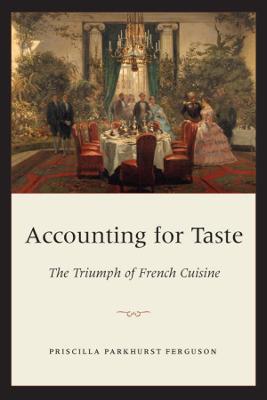
Lianne
Written on Jun 6, 2014
The focus is especially interesting, that of cuisine and its reflection on national identity, culture, and sense of history. In a more general sense, it focuses on food in a social context: who we are, how we associate ourselves with our cuisines.
As the title indicates, this book focuses on French cuisine, but a lot of the analysis I think can be applied to other cultures as well. Something that struck me as I was reading this book was how eating was seen as an intellectual activity as well, which is something I would have never considered; I wish I had saved the page where the narrative was talking about this in particular, it was rather fascinating. The author uses a variety of sources to discuss the development and impact of French cuisine over the last few centuries, from primary sources of pamphlets and newspapers and other sources from the time to French literature, in which foods come up quite frequently (something I never realised when I was reading some of the classics last year). By the last chapter, the narrative turns to the present and the current challenges that French society faces in terms of their cuisine and the advent of globalisation.
I honestly wish I had more time to read this novel more carefully and analyse it in an academic sense. But suffice to say, Accounting for Taste is a well-researched book and overall a fascinating read. Readers of French history, books about cuisine, and books about national identity and society will want to check out this title.
